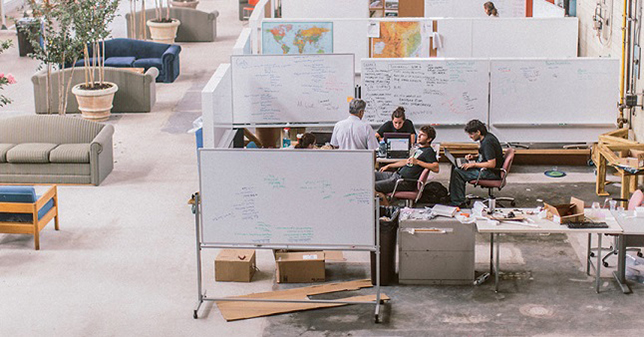Lehigh Mountain Project Models New Higher Ed Vision
Students in Lehigh University's summer-long research projects are given free license to explore new ideas and complex questions.

The Lehigh Mountain Project, which started three years ago with five projects and 25 students, has grown to 30 projects and 100 students this year.
For the third year, Lehigh University will invite a select number of college students — from both the Bethlehem, PA, campus and elsewhere — to create their own research projects. There will be no course credit, no set curriculum and no penalty for failure. The 100 or so students will even get stipends of between $450 and $600 to work with professors on projects they have created.
At its Mountaintop campus, two 50 foot-high buildings that were formerly research laboratories for Bethlehem Steel, the summer-long Lehigh Mountaintop Project is expected to demonstrate a new vision of higher education that goes beyond college's traditional boundaries.
"Students who accept the Mountaintop challenge are given free license to define complex questions, take intellectual risks, pursue knowledge and, most important of all, re-imagine the very nature of higher education and learning," said Alan Snyder, Lehigh vice president and associate provost for research and graduate studies.
Among the 30 projects students will work on this summer are:
- Adapting 3D ocean farming for vulnerable warm water coastlines;
- Designing a 3D printed exoskeleton to aid in rehabilitation for patients with muscle disorders;
- Creating extra-terrestrial greenhouses to provide sustainable agricultural systems in extreme conditions;
- Exploring the technical aspects of ocean wave energy to provide clean renewable electricity; and
- Designing an LCD globe display, intended to serve as a portal for connections among people.
The Lehigh Mountain Project launched in 2013 with 25 students in five projects, and now university officials are considering turning the summer program into a year-round initiative. It was initially funded by a $20 million gift from alumnus and Urban Outfitters founder Scott Belair.
"The interest from students and faculty mentors continues to grow," Snyder said. "The Mountaintop Project is one of the largest-scale projects Lehigh has ever embarked upon."
About the Author
Michael Hart is a Los Angeles-based freelance writer and the former executive editor of THE Journal.